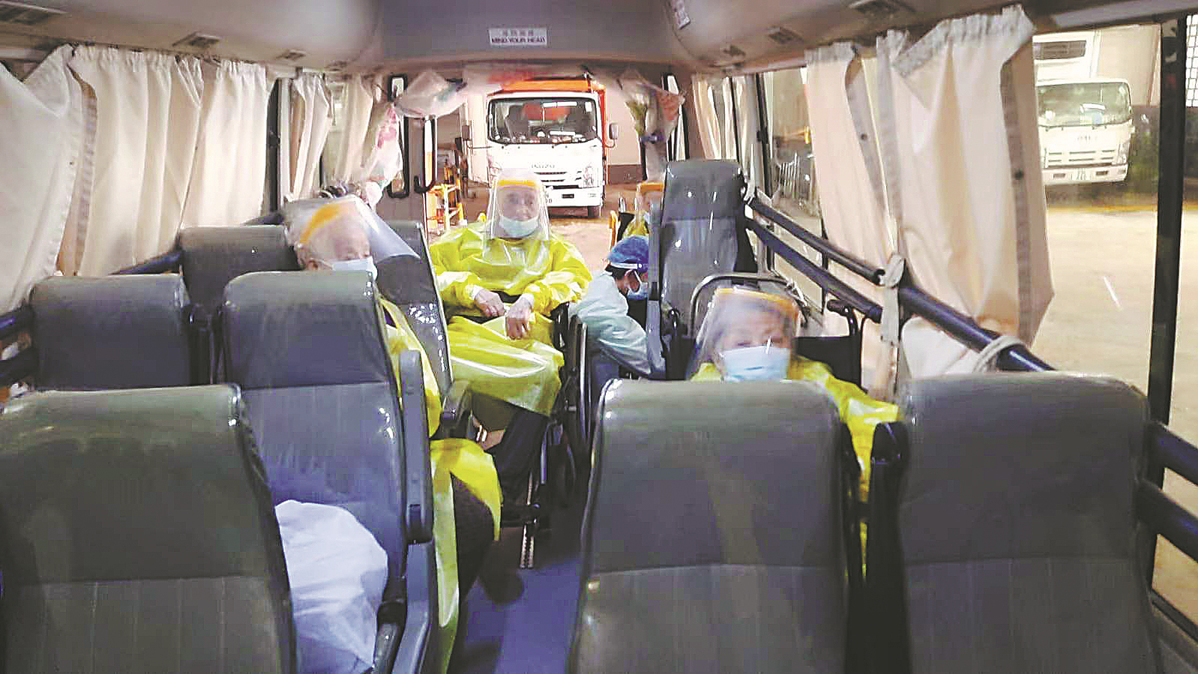HK seniors undergo 'quarantine in reverse'


Closed-loop system
To provide another level of safety, all 15 staff members at Pleasure Lodge are subject to a closed-loop management system, which denies them contact with the outside world. A shuttle bus takes them from their hotel to work at about 6 am and returns them after 7 pm.
Six caregivers and two nurses are among the staff members, who are mostly older than 50, but barely sufficient to keep the home, which had taken in some 35 residents by March 18, running day and night.
About a week after Pleasure Lodge started to accept healthy arrivals, a caregiver tested positive for COVID-19-the first infected employee at the home. The worker promptly resigned, fearing she might infect her family members.
Wilfred Tseung Kwan-lok, the home's chief financial officer, said, "We will replenish manpower from other homes owned by our company and we are also hiring more recruits through the job market."
The Hong Kong government sought help from the central authorities in hiring 1,000 caregivers from the Chinese mainland to help address the shortage in the city. By March 25, 630 mainland caregivers had arrived in Hong Kong to work at isolation centers for the elderly.
As of March 22, the coronavirus had spread to 780, or 90 percent, of the city's residential care homes for the elderly. About half the residents at these homes were infected.
Some 8,700 workers at the homes, which are short of employees, have become infected with COVID-19, further straining the workforce.
Tseung said the company that owns Pleasure Lodge, Sing Yan Health Care Group, which has eight nursing homes in Hong Kong, plans to hire 60 to 70 recruits. Seven are expected to arrive this month after the government speeds up the recruitment of imported labor in view of the pandemic.
Of the 180 staff members employed by the company, 140 have tested positive for COVID-19, with 130 recovering and returning to work.
Fong said the occupancy rate at the eight nursing homes is about 50 percent, with some 400 senior residents living in these facilities. About 300 elderly residents in the care homes owned by the company have contracted COVID-19, with 30 dying from infection by April 6.























